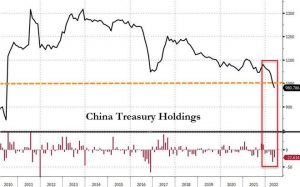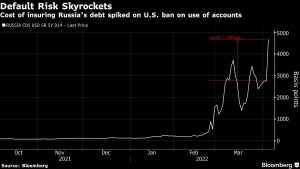
The legend of Swiss banks,Banks all over the world are desperately trying to befriend the rich, so that they deposit their money in their own vaults, but there is a bank is the world’s rich people touch the money to grab to deposit money into, that is, the Swiss banks. The Swiss bank is the most famous bank in the world, countless films and television works, such as God of Gamblers, Cold War inside will mention the Swiss bank. In the eyes of global customers, it is considered the world’s most trusted bank, about a quarter of the world’s personal wealth is deposited here. Politicians, business tycoons and celebrities feel comfortable placing their savings in Switzerland, and that’s why many people think of Swiss banks when they think of Switzerland.
Swiss bank is actually a general term, if you want to deposit your money in a Swiss bank, I’m afraid you can’t find this place. However, too much money is not always a good thing, and even too much money in Swiss banks does not only pay no interest, but also has to pay management fees to the bank.
In 2014, the Swiss central bank broke through the zero interest rate mark and officially announced that it had entered a negative interest rate phase in which it had to pay a fee for depositing money, maintaining the lowest interest rate in the world at minus 0.75. Because of the central bank’s monetary policy, the cost of holding money in Swiss banks has risen sharply, and banks have begun to pass on the cost to their customers, such as Credit Suisse, which began to implement a negative interest rate of 0.75 percent for customers with a deposit balance of more than two million Swiss francs on January 1, 2020, and a higher negative interest rate of 0.85 percent for corporate customers with more than 10 million Swiss francs, while UBS, the largest bank in Switzerland, has been offering a negative interest rate of 0.75 percent for its customers. Although the group has been stable in the past few years to maintain the interest rate of zero.08, but recently there is news that UBS will soon follow the ranks of negative interest rates, the news comes from an internal UBS memorandum, the contents show that the group will have to deal with negative interest rates in the next few years, and plans to start charging customers with cash balances of more than 250,000 Swiss francs from July this year, the interest rate fee of zero.758. Why are these rich people so aggressive in depositing their money when it is obvious that they will be charged?
Demystifying Swiss banks
1.Security
First of all, security, because of Switzerland’s permanent neutrality, military combat capabilities and strong, since ancient times, the Swiss mercenaries are the first in Europe, so in World War I and World War II, despite the surrounding countries are fighting, Switzerland was not affected by the war, and here the terrain is treacherous, easy to defend, the average area of the mountains accounted for sixty-eight of the total area, the rest of the region is also mostly plateau, the average altitude is more than 1,000 meters. The average altitude is over one thousand meters. It is because of such solid conditions that it has the natural advantage of being the world’s vault.
2.Confidentiality
Swiss banks have another feature that is famous all over the world, which makes Swiss banks often appear in major movies. Know Your Client”, which literally means “know your client”. This requirement comes from the Basel Committee on Banking Supervision’s statement on preventing criminals from using the banking system for money laundering, adopted in December 1998, which seeks to identify the client and understand the risks associated with providing his services through a series of processes to ensure that he does not compromise the business of the financial institution and the safety of society by laundering money or raising funds with terrorists, drug lords and other criminals. Unlike the Swiss bank, which considers maintaining the privacy of its customers a top priority, the Swiss bank has implemented a process to verify the identity of its customers. According to the Federal Law on Swiss Banks and Savings Banks, which came into force on November 8, 1934, neither bank executives nor individual employees have the right to disclose any account information to any third party, not even the Swiss federal government, which is commonly known as the Swiss Banking Secrecy Act. For the sake of customer privacy customers are even allowed to use pseudonyms or numbers instead, but also with virtual offices, companies, agencies and other forms of account opening, not only when opening a deposit can be entrusted by the agent, and withdrawal or transfer of funds, the bank will also be in full accordance with the rules agreed in advance with the customer, the real owner of the property can never show up, and in the bank is prohibited from taking pictures, do not speak the name, some even do not have a sign. Some even do not set up signs, the resources for handling personal secret accounts to be absolutely available, most of the staff is the son of the father, passed down from generation to generation, after a good professional education of the apprenticeship system, for them, for the customer confidentiality has an absolute sense of mission, if a violation will be fined 50,000 Swiss francs or a serious sentence of more than six years in prison, which is why the Wolf of Wall Street protagonist after being concerned by the FBI, immediately thought of hiring someone to open an account in a Swiss bank. This is why the Wolf of Wall Street protagonist immediately thought of asking someone to open an account at a Swiss bank after being noticed by the FBI. Tax evasion is considered a crime in the laws of most countries in the world, including the United States, but in Swiss law it is only considered a serious offense and a slightly less serious one. Therefore, even if Switzerland promises to follow the common law of international assistance in crime, it will only do so if Swiss law also defines the incident as a crime. If a crime in the eyes of the Americans is not considered a crime in the eyes of the Swiss, then the standard of mutual assistance is not met. This is why we often see gangsters, terrorists, and corrupt officials laundering their ill-gotten gains through Swiss banks, and wealthy businessmen from all over the world transferring their earnings or inheritance to Swiss banks to avoid taxes.
The end of the legend of Swiss banks
The IRS is the most powerful law enforcement agency in the United States, and there is an old adage in the United States that the only thing that matters in this world is death. In 2009, because of the financial turmoil that led to the financial difficulties in the United States, in order to save the treasury, the United States opened an overseas account taxation operation, and the thorn in the side was the money laundering and tax evasion paradise – Swiss banks. The IRS filed two consecutive lawsuits against UBS, accusing them of helping 5.2 million U.S. clients hide money in secret accounts for about $15 billion, costing the U.S. hundreds of millions of dollars in tax revenue each year. UBS continued to use the Bank Secrecy Act as a shield, but the IRS didn’t take it lying down and, together with France and Germany, threatened to blacklist Switzerland from the Organization for Economic Cooperation and threatened to impose economic sanctions on the country. Under such pressure, the Swiss government and UBS were at their wits’ end. After several negotiations, UBS was forced to hand over information on the 44,000 most valuable suspects and pay an additional $78 million to the IRS as a penalty for delay.
This victory led to the signing of an agreement between Switzerland and the U.S. that requires Swiss banks to disclose information about the accounts of the American public to the U.S. government. This agreement is the latest in a series of ongoing Foreign Account Tax Compliance Act actions, and thus the infamous FATCA provision was born. But even with this victory, most of those anonymous customers of UBS and other banks like Credit Suisse have still not been disclosed. That’s when the IRS stepped in again, taking Switzerland’s oldest private bank, Wegelin Bank, to court, pleading guilty in early 2013 in the U.S. District Court in Manhattan, New York, to helping hundreds of wealthy American clients evade at least $1.2 billion in taxes over nearly a decade. In 2014, the Swiss bank promised to automatically hand over details of its foreign accounts to other countries. The bank’s century-old tradition of secrecy has now been officially dismantled.

